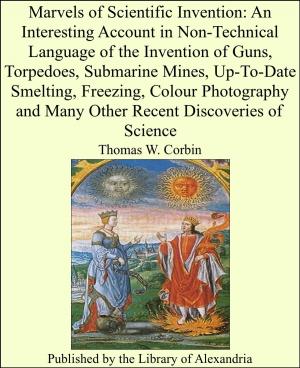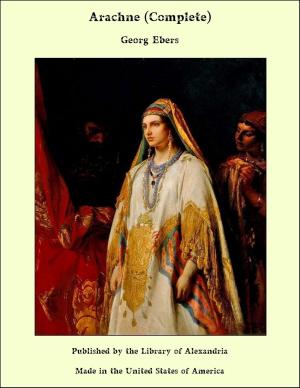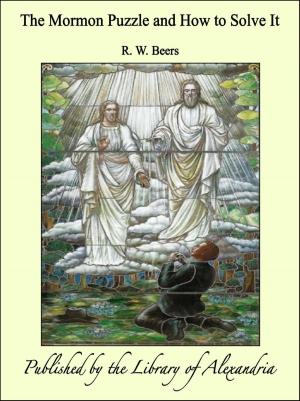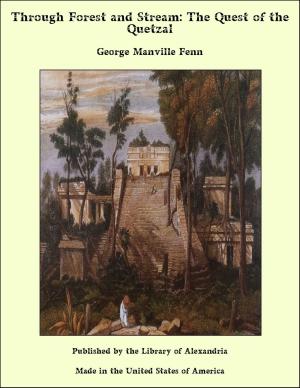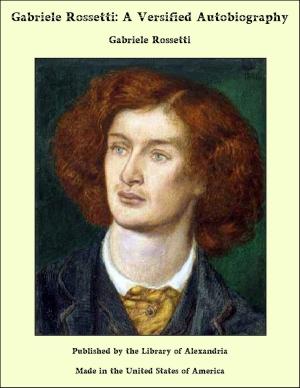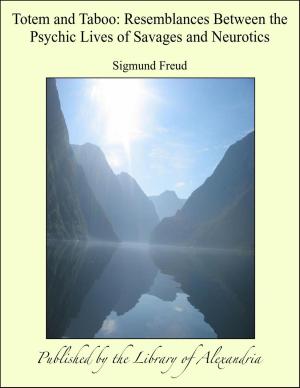A Manual of Ancient History
Nonfiction, Religion & Spirituality, New Age, History, Fiction & Literature| Author: | Mary Elsie Thalheimer | ISBN: | 9781465618986 |
| Publisher: | Library of Alexandria | Publication: | March 8, 2015 |
| Imprint: | Language: | English |
| Author: | Mary Elsie Thalheimer |
| ISBN: | 9781465618986 |
| Publisher: | Library of Alexandria |
| Publication: | March 8, 2015 |
| Imprint: | |
| Language: | English |
Several causes have lately augmented both the means and the motives for a more thorough study of History. Modern criticism, no longer accepting primitive traditions, venal eulogiums, partisan pamphlets, and highly wrought romances as equal and trustworthy evidence, merely because of their age, is teaching us to sift the testimony of ancient authors, to ascertain the sources and relative value of their information, and to discern those special aims which may determine the light in which their works should be viewed. The geographical surveys of recent travelers have thrown a flood of new light upon ancient events; and, above all, the inscriptions discovered and deciphered within half a century, have set before us the great actors of old times, speaking in their own persons from the walls of palaces and tombs. Nor is the new knowledge of little value. If we look familiarly into the daily life of our fellow-men thousands of years ago, it is to find them toiling at the same problems which perplex us; suffering the same conflict of passion and principle; failing, it may be, for our warning, or winning for our encouragement; in any case, reaching results which ought to prevent our repeating their mistakes. The national questions which fill our newspapers were discussed long ago in the Grove, the Agora, and the Forum; the relative advantages of government by the many and the few, were wrought out to a demonstration in the states and colonies of Greece; and no man whose vote, no woman whose influence, may sway in ever so small a degree the destinies of our Republic, can afford to be ignorant of what has already been so wisely and fully accomplished. Present tasks can only be clearly seen and worthily performed in the light of long experience; and that liberal acquaintance with History which, under a monarchical government, might safely be left as an ornament and privilege to the few, is here the duty of the many. The present work aims merely to afford a brief though accurate outline of the results of the labors of Niebuhr, Bunsen, Arnold,Mommsen, Rawlinson, and others—results which have never, so far as we know, been embraced in any American school-book, but which within a few years have greatly increased the treasures of historical literature. While it may have been impossible, within our limits, to reproduce the full and life-like outlines in which they have portrayed the characters of ancient times, we have sought, with their aid, at least to ascertain the limits of fact and fable. With but few exceptions, and those clearly stated as such, we have introduced no narrative which can reasonably be doubted. The writer is more confident of justice of aim than of completeness of attainment. No one can so acutely feel the imperfections of a work like this, as the one who has labored at every point to avoid or to remove them; to compress the greatest amount of truth into the fewest words, and while reducing the scale, to preserve a just proportion in the details. To hundreds of former pupils, who have never been forgotten in this labor of love, and to the kind judgment of fellow-teachers—some of whom well know that effort has not been spared, even where ability may have failed—this Manual is respectfully submitted.
Several causes have lately augmented both the means and the motives for a more thorough study of History. Modern criticism, no longer accepting primitive traditions, venal eulogiums, partisan pamphlets, and highly wrought romances as equal and trustworthy evidence, merely because of their age, is teaching us to sift the testimony of ancient authors, to ascertain the sources and relative value of their information, and to discern those special aims which may determine the light in which their works should be viewed. The geographical surveys of recent travelers have thrown a flood of new light upon ancient events; and, above all, the inscriptions discovered and deciphered within half a century, have set before us the great actors of old times, speaking in their own persons from the walls of palaces and tombs. Nor is the new knowledge of little value. If we look familiarly into the daily life of our fellow-men thousands of years ago, it is to find them toiling at the same problems which perplex us; suffering the same conflict of passion and principle; failing, it may be, for our warning, or winning for our encouragement; in any case, reaching results which ought to prevent our repeating their mistakes. The national questions which fill our newspapers were discussed long ago in the Grove, the Agora, and the Forum; the relative advantages of government by the many and the few, were wrought out to a demonstration in the states and colonies of Greece; and no man whose vote, no woman whose influence, may sway in ever so small a degree the destinies of our Republic, can afford to be ignorant of what has already been so wisely and fully accomplished. Present tasks can only be clearly seen and worthily performed in the light of long experience; and that liberal acquaintance with History which, under a monarchical government, might safely be left as an ornament and privilege to the few, is here the duty of the many. The present work aims merely to afford a brief though accurate outline of the results of the labors of Niebuhr, Bunsen, Arnold,Mommsen, Rawlinson, and others—results which have never, so far as we know, been embraced in any American school-book, but which within a few years have greatly increased the treasures of historical literature. While it may have been impossible, within our limits, to reproduce the full and life-like outlines in which they have portrayed the characters of ancient times, we have sought, with their aid, at least to ascertain the limits of fact and fable. With but few exceptions, and those clearly stated as such, we have introduced no narrative which can reasonably be doubted. The writer is more confident of justice of aim than of completeness of attainment. No one can so acutely feel the imperfections of a work like this, as the one who has labored at every point to avoid or to remove them; to compress the greatest amount of truth into the fewest words, and while reducing the scale, to preserve a just proportion in the details. To hundreds of former pupils, who have never been forgotten in this labor of love, and to the kind judgment of fellow-teachers—some of whom well know that effort has not been spared, even where ability may have failed—this Manual is respectfully submitted.


